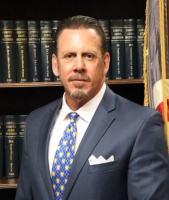Omaha Criminal Lawyer, Nebraska
Thomas Jay Olsen
Criminal, Felony, DUI-DWI, Domestic Violence & Neglect, Firearms
Attorney Tom Olsen handles criminal defense cases in Omaha, Douglas County and throughout Nebraska. With over 30 years experience, Tom is generally co... (more)
Andrew J. Wilson
✓ VERIFIEDAccident & Injury, Personal Injury, Criminal, Divorce & Family Law, Wrongful Death
Andy is an Omaha native joining Carlson and Burnett as a partner with over 25 years of criminal and civil litigation experience. He began his career i... (more)
Timothy P. Sullivan
✓ VERIFIEDCriminal, DUI-DWI, Misdemeanor, Felony, Visa
Experienced, Effective, Aggressive Representation
Timothy Sullivan is a lawyer based in Lincoln, NE who can assist with criminal defense, family law, immigration, and more.
FREE CONSULTATION
CONTACTFREE CONSULTATION
CONTACTVan Ace Schroeder
Wills & Probate, Family Law, Criminal, Bankruptcy, Personal Injury
Status: In Good Standing
FREE CONSULTATION
CONTACTFREE CONSULTATION
CONTACT




